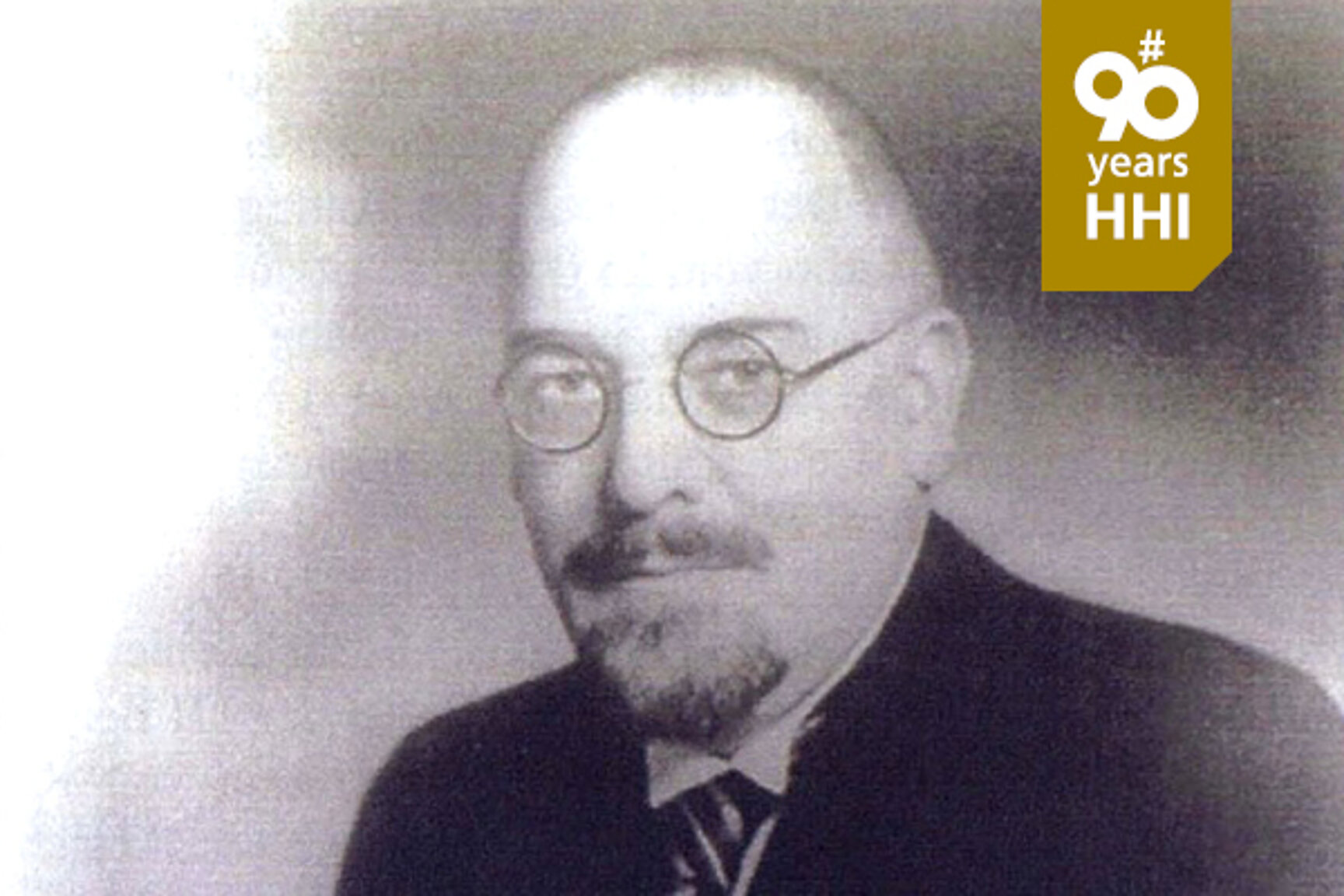1927/1928

Karl Willy Wagner was the first director of the Heinrich-Hertz-Institut, beginning his term in office in 1928 and finishing in 1936.
Did you know? A few highlights from an exciting life:
- Karl Willy Wagner was born in 1883 in Friedrichsdorf in the Taunus region. While his father was a merchant, his mother originated from a Huguenot family and spoke exclusively French at home.
- The family spent several years in the house of Philipp Reis, the inventor of the telephone. Karl Willy Wagner later dedicated himself to conserve the historical site by promoting its conversion into the Philipp Reis Museum, which exists until today.
- During his time at the Telegraphy Research Office, he contributed to the development of phone receivers, among other things.
- He played a part in the development of the transoceanic network for telegraph cables, when he was on board of the steamer Stephan, a cable-laying steamship of the Norddeutsche Seekabelwerke.
- During the First World War, Karl Willy Wagner developed a tap-proof method for confidential telephone services.
- Between 1923 and 1927, he worked as the President of the Telegraphy Technology Office.
- In 1924, he founded the journal Elektrische Nachrichtentechnik.
- He lectured at the TH Berlin, where he was appointed to honorary professor in 1925.
- In August 1927, he was inducted as endowed professor of general oscillation theory at the TH Berlin. Furthermore, he was entrusted with the establishment of the Institute of Oscillation Research, which was named Heinrich-Hertz-Institut on 7th March 1930.
- After the Second World War, he returned to his birthplace of Friedrichsdorf, where the US occupation forces appointed him as the chair of the planning committee, tasked with rebuilding the post and telecommunication services in the British and French zones.
- In his many public offices, he was one of the co-founders of the University of Mainz, Member of the German Academy of Sciences, Honorary Doctor of the University of Stockholm, Member of the Royal Swedish Academy of Engineering as well as Honorary President of the Technical University of Darmstadt.
- In 1953, he was awarded the Grand Order of Merit of the Federal Republic of Germany with a star.
- He passed away on 3rd September 1953.
- One extraordinary aspect of his professional life was his role in founding the Landgrafen-Zwiebackfabrik OHG with his brother-in-law. Friedrichsdorf was known as the “Rusk capital” of Germany, and “Genuine Friedrichsdorf Rusks” were popular around the world at that time.